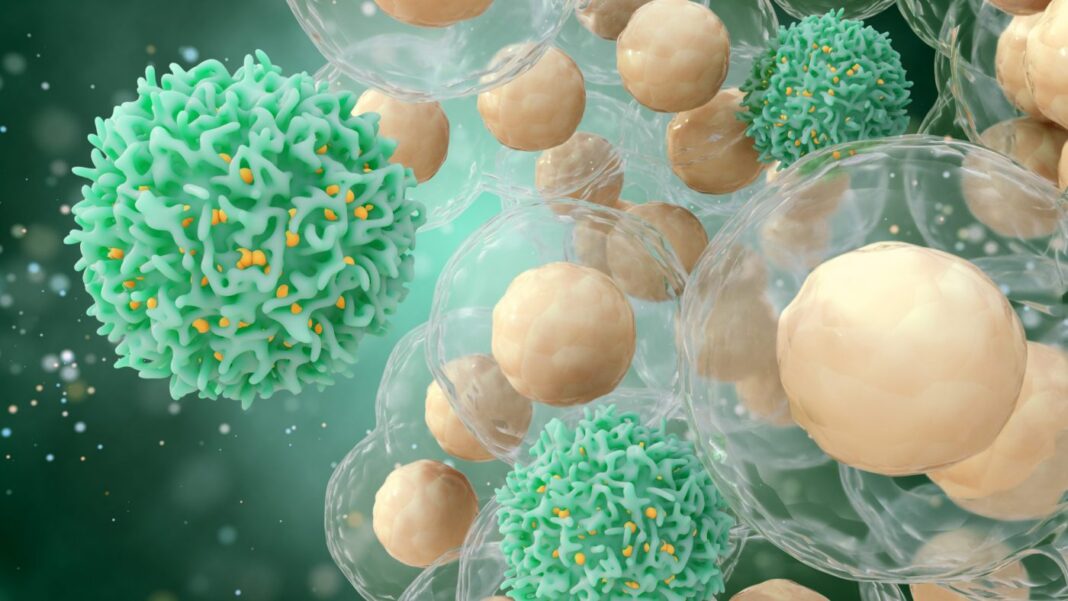Researchers at Trinity College Dublin say they have identified a rare, new cell in the immune system with “Jekyll and Hyde properties.” These cells play a key protective role in immunity to infection but, if unregulated, also mediate tissue damage in autoimmune disorders. The findings, “A population of proinflammatory T cells coexpresses αβ and γδ T cell receptors in mice and humans”, published in the Journal of Experimental Medicine, should help scientists design more effective vaccines to prevent infections such as MRSA, and may also assist in the development of new therapies for autoimmune diseases, such as multiple sclerosis or rheumatoid arthritis, according to the Trinity College team.
“T cells are classically recognized as distinct subsets that express αβ or γδ TCRs. We identify a novel population of T cells that coexpress αβ and γδ TCRs in mice and humans. These hybrid αβ-γδ T cells arose in the murine fetal thymus by day 16 of ontogeny, underwent αβ TCR–mediated positive selection into CD4+ or CD8+ thymocytes, and constituted up to 10% of TCRδ+ cells in lymphoid organs. They expressed high levels of IL-1R1 and IL-23R and secreted IFN-γ, IL-17, and GM-CSF in response to canonically restricted peptide antigens or stimulation with IL-1β and IL-23,” write the investigators.
“Hybrid αβ-γδ T cells were transcriptomically distinct from conventional γδ T cells and displayed a hyperinflammatory phenotype enriched for chemokine receptors and homing molecules that facilitate migration to sites of inflammation. These proinflammatory T cells promoted bacterial clearance after infection with Staphylococcus aureus and, by licensing encephalitogenic Th17 cells, played a key role in the development of autoimmune disease in the central nervous system.”
The research was funded by Science Foundation Ireland and led by Kingston Mills, PhD, professor of experimental immunology, and Sarah Edwards and Caroline Sutton, postdoctoral fellows in the School of Biochemistry and Immunology in the Trinity Biomedical Sciences Institute.
“Until now scientists thought that there were two discrete populations of T cells, expressing either ‘αβ’ or ‘γδ’ TCRs. The αβs are the most common T cells in the body. They play a key role in remembering prior infection or immunization and thereby help protect us against reinfection and mediate vaccine-induced protective immunity. The γδs are more prevalent at mucosal surfaces, such as the lung or gut, and provide an immediate first line of defense against pathogens that invade through these routes,” said Mills. “We have discovered a new cell type that expresses both αβ and γδ TCRs. This rare population of chimeric or hybrid αβ-γδ T cells has properties of both αβ and γδ T cells. Importantly, they are normally highly activated and poised to act as first responders to control bacterial infection. However, given this high level of activation, they are effectively ‘Jekyll and Hyde cells’ because in certain contexts they can also precipitate autoimmune responses.”
Using a model of S. aureus infection, Mills and his team found that these cells are rapidly mobilized during infection and play a key role in quickly eliminating the microbes from the body. The induction of these hybrid αβ-γδ T cells may thus represent a novel approach in the design of more effective vaccines against Staph aureus and other infectious diseases, while advancing our ability to control their response may yield additional therapeutic options.
“In a model of autoimmune disease, we found that the hybrid T cells can also trigger the inflammatory cascade that mediates tissue damage in autoimmunity,” added Mills. “Therefore, approaches for inhibiting these highly activated immune cells in susceptible individuals may open up new approaches for the treatment of autoimmune diseases such as psoriasis and multiple sclerosis.”


